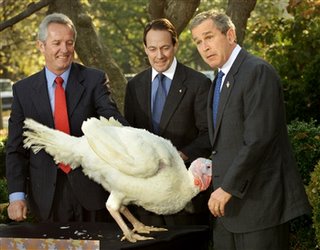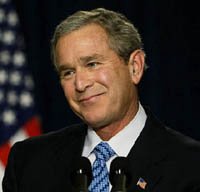My
friend sent me these thoughts, since they wouldn't fit into the comments space. She, for the record, wrote a 65 (!) page thesis on this subject in college. (pardon the weird question marks. i think it should stand for quotes).
Why do people feel the need to define their sexuality?
I agree with you - it all makes the most sense to me when people dig on labels as their way of initially establishing themselves within an identity-based community, like your now-engaged friend did back in college when she was starting to explore her sexuality. It especially makes sense when some suburban white kid comes out as queer and is part of a marginalized community for the first time ever. Boi is that fun, take it from me.
Also, though, it makes sense, right, that people understand how they fit into a community if they can size up other people and themselves on some sort of shared scale. People want to see how they fit in, who they can sleep with, what their role is, how they should treat other people ? and all of that depends, in part, on how people self-identify in relation to each other ? its like code! If I?m butch and you?re butch, then in most communities we would never even entertain attraction to each other. That?s just so gay, it might as well be straight, um? or something. Just don?t do it. Really, though, labels are a useful sort of intra-community communication device. I haven?t really done a study, but I bet that I smile at strangers whose clothing alone identifies them as queer to me more than I smile at random straight-looking people. Okay, I know that?s fucked up. (By the way, they usually teach you the necessity and importance of this secret gay code when you reach level 7 on the 1-10 gayness scale, Harris, so I?m surprised to hear that they?re letting people slip by to 8 without that lesson. It?s probably a good thing ? so old school!)
Speaking of numbered scales of gayness, Kinsey is a surprisingly good movie.
I think that in this country in particular, ambiguity is just a downer, as evidenced by the continual violence laid on trannies in the name of some type of security? at public bathrooms, at airport checkpoints, at schools, at doctor?s offices, etc, etc, etc. Also evidenced by the sneers you used to get from women you where hitting on when you would tell them that you were bi. One thing that is really interesting about this whole why-do-people-love-labels thing is just how westernized it is, especially if we?re talking about queerness. Obviously my experience is only good for what it is, but I spent some time in Mombasa, Kenya in Fall 2001, and one of the things that was so striking there, to me, was a general cultural disregard for all things gay. I have some cool photos of anti-gay slurs and I definitely got mocked and judged when I asked some Kenyan friends there about where the gay people were. I just wanted to find my people you know, (a convenient use of labels), but gay people didn?t really exist there; it wasn?t an identity that people really seemed to take on at all. Because of that, there wasn?t really any threat of being people being harassed for being gay. I, for one, was assumed to be straight by everyone I met, which is funny because in the US, I?m practically never mistaken for straight ? I?m your average dyke next door ? and I had a more vehemently queer image then than now. But then here?s the kicker: in Mombasa men ? sometimes the same ones that just spit up all this homophobic trash to me ? they would walk all around town and told hands and kiss each other and just generally show so much more affection than I had ever seen two straight men in the US show to each other. (And I?m certain that this trend happens around the world with both men and women.) And of course most of these men had a wife or were most likely going to marry some woman some time in the next decade, but almost certainly some of them slept with each other. And, from what I could tell, sometimes it was even widely known that two men were sleeping together, but it wasn?t a big deal because that behavior wasn?t linked to an identity. Which just goes to show that it?s not like labels, in and of themselves, that are so empowering. But in the US, they definitely can be, which makes you wonder about the kind of society we live in where it takes the birth of an identity and a community to defend ourselves (politically and
physically) against the misuse of power and control. Perhaps labels just perpetuate that, I don?t know.
So in terms of labels here in this country, I generally like the word queer because it is so shifty and ambiguous. I liked when you mentioned that your engaged friends in the traditionally gender-roled relationship (let?s call them the Lesbians) are in the average non-queer relationship. Not to rob the Lesbians of their queerness, but I think it?s great when people think of queerness as not necessarily linked to who you sleep with or even sexuality as traditionally understood at all. Straight people who do all sorts of crazy sex things ? those people can be queer if they want. Why not. Cowboys in Idaho who invent sex machines with dildos and saddles ? that guy is totally queer, regardless of where he sticks his own. Probably more queer than the Lesbians who are getting married, if you ask me. I think that ?queer? is an interesting departure from the previous labels in this genre because it is so shifty. People don?t know what the hell it means and lots of people, including my own parents, can?t even tell if it?s being used derogatorily or not. I feel like ?queer? separates me from the ?gay men and lesbians? just as much as it separates me from stereotypically ?straight?
people. But I don?t really go around and yell about being queer all the time? or actually maybe I do. I?m not sure, ha. Do I? Maybe only when it?s convenient for me. Well, that seems like a good place to stop. Go queers!


